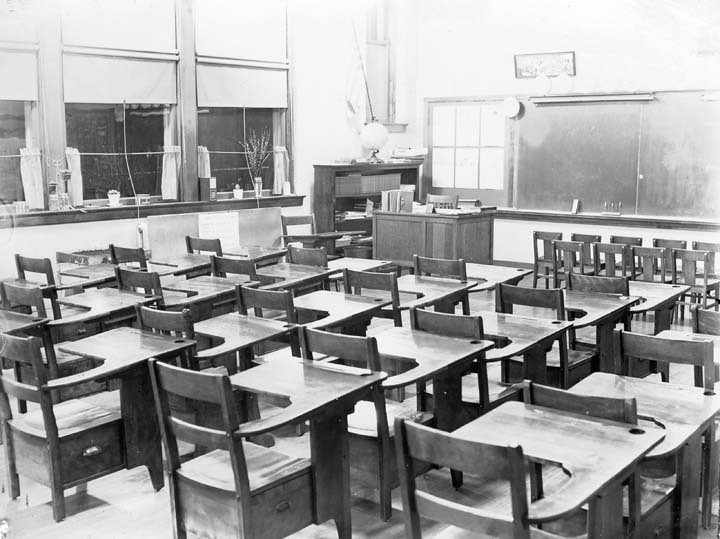A new study, published in American Psychologist, examines the impact of official infractions given for minor misconduct, or minor infractions, on students in the American school system. Researchers found that minor infractions negatively impact adolescents who demonstrate a strong attachment to school as a form of support, contribute to increases in adolescents’ misconduct, and are also disproportionately given to African-American students, as opposed to white students.
These findings are concerning as schools in the United States tend to rely on punitive discipline policies as a way to manage student behavior. The results suggest that these discipline tactics are not only ineffective but contribute to racial inequalities and the very behaviors that these modes of punishment are trying to deter. The authors, led by Dr. Jamie Amemiya, write:
“American citizens often misinterpret racial disparities, particularly those in the criminal justice system, as reflecting a behavioral or cognitive deficit of disadvantaged racial groups. This study offers counterevidence to this claim and highlights how educational institutions may perpetuate such disparities through racially biased responses to normative adolescent behavior.”

Rebellious, risky behavior is common in teenagers, as it provides them with a way of gaining a sense of independence from adults, as well as acceptance from their peers, both of which are crucial to adolescent development. Adolescents may break minor, inconsistently enforced rules at school such as violating dress codes, using their cell phones, or joking around during class in an attempt to test boundaries, assert a sense of autonomy, and to impress their peers. Although disruptive to the classroom, minor misconduct may be fundamental to healthy adolescent development.
The U.S. school system typically takes a punitive approach to discipline, imposing official disciplinary actions, such as infractions, suspensions, or detentions, on students who violate rules to deter future misbehavior. While intended to manage classroom behavior, current research demonstrates that disciplinary action has negative consequences. Suspensions are given disproportionately to African American students and to predict worse outcomes in life, including involvement in the criminal justice system.
Amemiya and her colleagues focus their investigation on the impact of minor infractions on students, pointing to a gap in the research literature, as most research focuses on more severe disciplinary actions, such as suspensions. They aimed to explore whether minor infractions are predictive of further challenging behavior as well as to examine the role of racial bias in the issuing of minor infractions.
The researchers examined a dataset, collected over one school year, from an urban school network located in the Mid-Atlantic region of the U.S. The participants included 729 sixth, eighth, and tenth-grade students from nine schools. The majority of students were sixth and eighth-graders.
Most of the students were African American or white, with seven schools comprised of predominantly black students (71%) and two that were nearly proportionate, consisting of 53% white students. Additionally, most students (73.5%) qualified for free or reduced-price lunch, suggesting economic disadvantage.
Records of disciplinary infractions were examined to determine the number of minor infractions given, and two principals were interviewed about the process of how infractions were given to students. Minor infractions included misbehavior such as inappropriate language and horseplay and consisted of 50% of the infractions given for the school year. Defiant behavior, which included misconduct such as cheating, insubordination, and vandalism, were also included and consisted of 16% of the infractions given for the year.
Researchers also took into consideration the students’ attachment to school, through a survey which asked them to rate their feelings towards various statements of attitudes toward school – for example, “I am proud of my school.” Additionally, to examine racial bias and school disciplinary action, the authors took into consideration the race of the participants.
Interestingly, although the Amemiya and her colleagues found no notable differences between black and white students’ self-reports of attachment to school, impulsivity, or misbehavior at school, they did find that African American students received significantly more infractions and suspensions than white students. The authors connected their findings to prior research that has demonstrated the negative influence of racial bias on teachers’ perceptions of African American students, citing that their work further documents the fact that black students are punished more harshly for normal teenage behavior.
Moreover, more than half of the participants (53.4%) were given at least one minor infraction over the course of the school year. The researchers found that receiving minor infractions was predictive of increases in misbehavior, although receiving more serious infractions, such as for aggressive behavior, was not.
They suggest that the arbitrary and inconsistent nature of the punishment of minor misconduct might be what is contributing to adolescents becoming more reactionary and defiant. Further, the prediction of increased defiant behavior was found to be most significant for students who were highly attached to the school. In other words, the students who most view school as a place of support are most negatively impacted by sanctioned punishment for minor misbehavior.
A major limitation of this study includes the fact that it was conducted within one charter school network, and therefore the findings might not be applicable across other school systems. That being said, however, the findings of this study have been found to support previous research conducted.
Also, further research will need to be conducted with students in elementary school as well, as this study focused solely on middle and high school students. In addition, as this study was based on a dataset, it will be important to conduct future research where data on misconduct is collected at the moment, as opposed to reflecting back only on official reports, which does not capture the entirety of student misbehavior.
A key takeaway from the research findings is that current methods of addressing student misbehavior are ineffective, and in fact, harmful to students. The authors suggest that replacing a punitive approach to discipline with interventions that help build positive student-teacher relationships is crucial to resolving this problem. They offer the Consistency Management and Cooperative Discipline program as a potential alternative, as this approach encourages a more active student role in the classroom, through promoting the co-creation of rules by teachers and students.
Additionally, this study highlights the racial disparities present within the educational disciplinary system and shows how discrimination against African American students can contribute to an increase in future defiant behavior, which in turn, can put them at risk for future criminal justice involvement.
****
Amemiya, J., Mortenson, E., & Wang, M. (2020). Minor infractions are not minor: School infractions for minor misconduct may increase adolescents’ defiant behavior and contribute to racial disparities in school discipline. American Psychologist, 75(1), 23-36. (Link)













“defiant behavior …” according to who’s definition?
“It is no measure of health to be well adjusted to a profoundly sick society.”
I’m sure the very small proportion of humanity that have the most influence have nothing to do with our current challenges …
Report comment
Drapetomania was a conjectural mental illness that, in 1851, American physician Samuel A. Cartwright hypothesized as the cause of enslaved Africans fleeing captivity.
Report comment
“At risk for future criminal justice involvement” … like selling marijuana. Two strikes and your out …
Report comment
Removed for moderation.
Report comment
“Conceptualizing” “psychopathology” *ITSELF* is destructive of both REVERENCE, and human DIGNITY.
No truly self-respecting Human Being ever believes in neologisms such as “psychopathology”, anyway….
Report comment
When we talk about criminal justice system, we always need to talk about books of (or with) religion.
Report comment
I’m sorry, I got lost at the end with the “conceptualizing”.
I guess the “negatively impacted adolescents”, will next be described as being “mentally ill”.
It is then that they can be treated for the psychopathology.
Psychology likes to do studies. yawn
Report comment